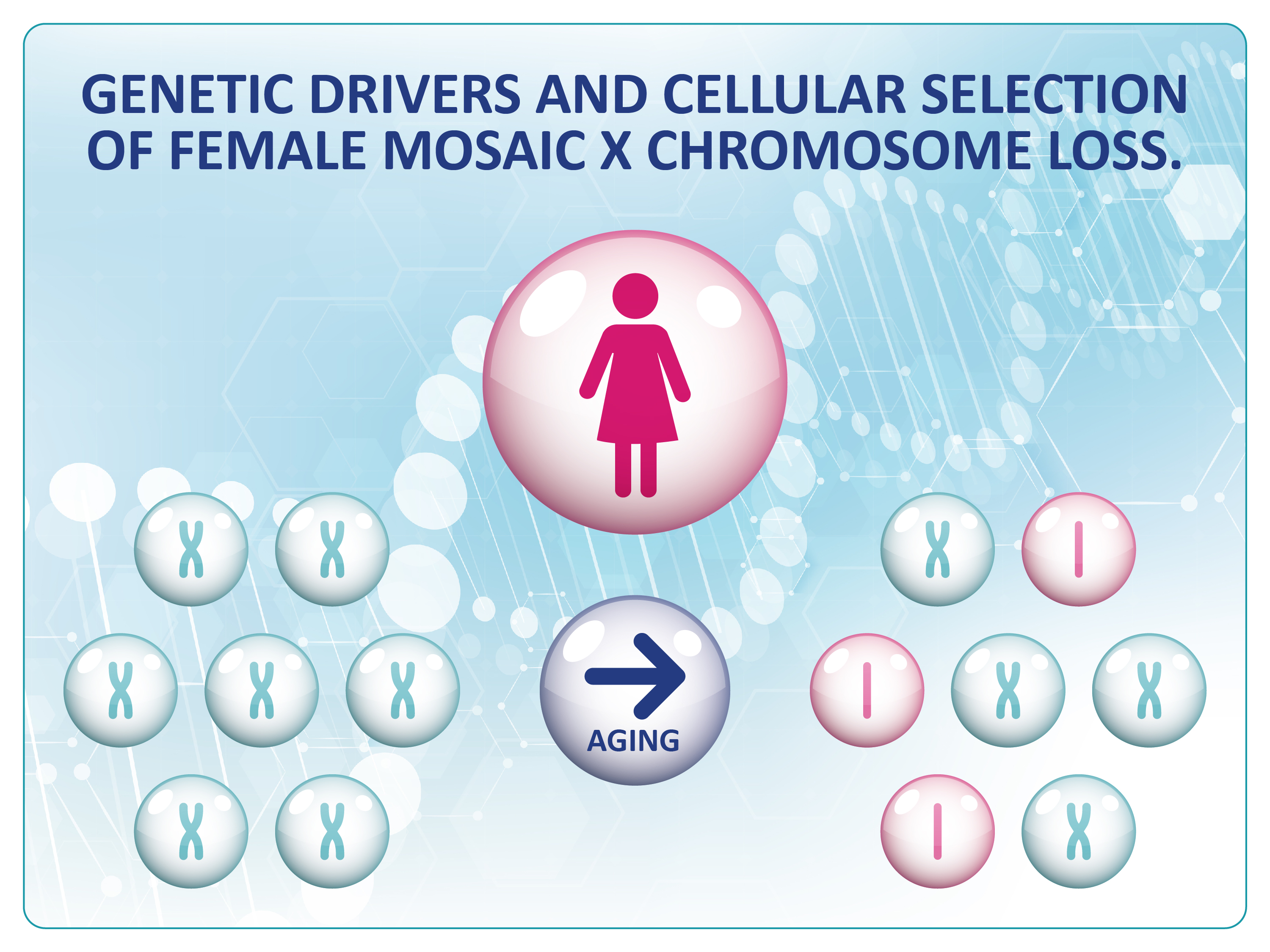
A study co-led by researchers at the National Cancer Institute and recently published in Nature suggests that as some women age, their white blood cells can lose a copy of one of their two X chromosomes. Scientists have identified inherited genetic variants that may predict this phenomenon, which is called “mosaic loss of chromosome X” or “mLOX.” These genetic variants may play a role in promoting the multiplication of abnormal blood cells, which could lead to several health conditions, including cancer.
Researchers analyzed the white blood cells of nearly 900,000 women to better understand the causes and effects of mLOX. The researchers identified 56 common genetic variants—located near genes associated with autoimmune diseases and cancer susceptibility—that influenced whether mLOX developed.
The researchers also identified a set of inherited genetic variants that were more frequently observed on the retained X chromosome in women with mLOX. These variants could one day be used to predict which copy of the X chromosome is retained when mLOX occurs. This research is important because the copy of the X chromosome with these variants may have a growth advantage that could elevate the woman’s risk for blood cancer. The study confirmed an association between mLOX and an increased risk of leukemia and susceptibility to infections that cause pneumonia.
The scientists suggest that future research should focus on how mLOX interacts with other types of genetic variation and age-related changes to potentially impact disease risk.
